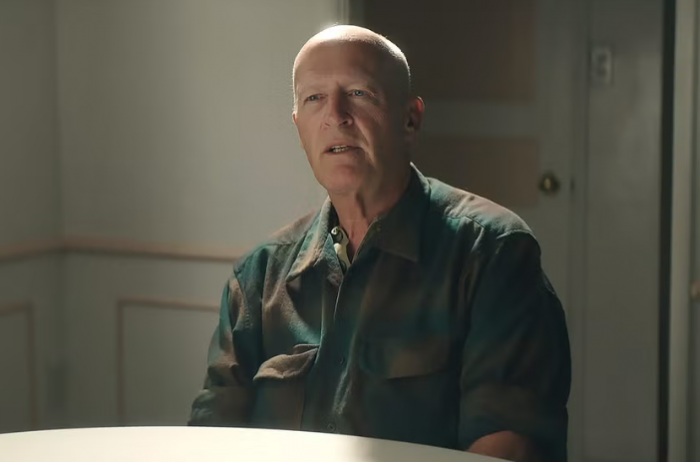The true crime docs of the last few weeks have been, to my eye, a parade of profound evil and profound stupidity. From the billionaire-disconnect from reality that was Titan: The OceanGate Disaster to the senselessness of giving Sherri Pappini a microphone and putting her in front of a camera, from the unconvincing and self-serving bullshit spewed by Molly and Tom Martens in Deadly American Marriage to the straight-up sociopathy of David Sconce in The Mortician … It is truly a trend of giving the floor to killers, abusers, and liars in a grotesque presentation of: Look at this monster-and also listen to them, because what if they’re really telling the truth?
The monsters in question look into the camera and tell their truth, in which they are no monster at all. (With a caveat for the late Stockton Rush of OceanGate, whose perspective is represented through many, many recordings both promotional and private.) Reliably, it’s a truth that makes very little sense to anyone watching with a shred of context.
The common thread among these assholes is a poisonous strain of narcissism — a conviction that whatever reality they choose to suit their narrative is objective truth, or at least deserves to be treated as objective truth. Oh, and a disregard for the lives — both emotional and literal — of the people caught in their webs.
One of these stories, The Mortician, just finished its run on Max; all three episodes are now streaming. This extreme and brutal story is worth a direct look on its own. It is, truly, an exercise in calm and self-satisfied evil.
The Mortician follows the crimes and apprehension of a horrifically inhumane crematorium operator, David Sconce, who discovered he could make a greater profit by burning dozens — sometimes hundreds — of bodies at a time. Ashes comingled, gold pried from teeth, and, in a nightmarish twist, because of course, organs stolen in a very profitable side hustle to the main fraud. Laurieanne, David’s mother and co-conspirator, kept a little box of human ashes at her desk so she could measure out the amount that would approximate the appropriate amount for a cremated infant corpse. You know, to give to mourning families. Because who knew at that point where the actual remains were — certainly not the Sconces.
Then there are the crimes against the living — a number of orchestrated assaults against rival funeral home directors … and the murder of another. Sconce bragged about poisoning the man and sent his employees to beat him afterward. The final episode includes a nearly Jinx-like moment; the filmmakers take a break from the formal interview, but Sconce just can’t stop talking about the things he “can’t tell them,” essentially confirming, with a smile, that he’s killed at least three people.
The framing of the docuseries is that Sconce has just been released from prison and is ready to tell his side of the story — that bodies are just bodies and ashes are just ashes, and people need to chill. That he only took the organs to help people. That he was so selfless, he just didn’t take the time to get the permits he should have before using an old pottery facility as an improvised crematorium.
But here’s the thing: Sconce comes off as an utter moron. He simply doesn’t have the emotional capacity to understand how transparent he appears to the non-sociopathic people watching.
There’s an illuminating contrast between Sconce and one of his former employees interviewed about the crimes. The employee, who operates by a gang-style code of Don’t snitch, describes how he denied, denied, denied to the police after his arrest for the crematorium crimes. But the employee knows that he’s lying. He knows why he’s lying. When his loyalty is not rewarded with loyalty from those he’s protecting, he knows it’s time to stop lying.
David Sconce does not seem to have that same basic understanding of what is a lie and how those lies relate to the people around him. Instead — like Stockton Rush, like Sherri Pappini, like Molly and Tom Martens — reality to Sconce conforms to whatever he decides it is.
The Mortician is an infuriating distillation of all these but wait, here’s my version! true crime programs: giving a platform to the people doing the most harm and telling us to listen.


